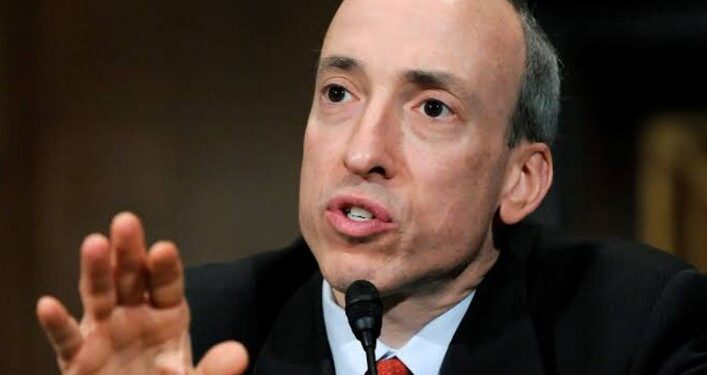The United States authorities have taken strict measures against prominent crypto exchanges over two years through its regulatory bodies. This action is a result of their efforts to comprehend decentralized finance and safeguard their citizens from the unpredictable aspects associated with it.
CryptoPotato reports that these suppressions are frequently motivated by the US regulatory agencies’ push for crypto companies to adhere to regulations regarding their offerings and services.
The list of cryptocurrency exchanges targeted by US regulatory bodies is vast, with certain instances standing out more prominently than others. Lawsuits have been filed against decentralized protocols such as Uniswap, cryptocurrency mixing platforms like Tornado Cash, and major companies like Binance and Coinbase.
US And Her Battle With Crypto
The fight between the United States Securities and Exchange Commission (SEC) and crypto entities intensified around last year.
Binance and Coinbase
At the beginning of June, the US SEC filed lawsuits against Binance and Coinbase, the biggest cryptocurrency exchanges worldwide and in the nation. Both companies were accused of the same offenses: not registering as brokers, national securities exchanges, clearing agencies, and breaching U.S. securities regulations.
Tornado Cash
Two months after the clamp down on Binance and Coinbase, the founders of Tornado Cash, a Crypto mixing firm, have been accused by the Department of Justice (DOJ) of laundering more than 1 Billion dollars in criminal proceeds.
Kraken
Towards the end of last year, The US SEC charged Kraken another cryptocurrency exchange with a similar charge faced by Binance and Coinbase earlier in the year.
READ MORE: LemFi Suspends Ghana Operations, Here’s Why
Kucoin
In March of 2024, KuCoin, a cryptocurrency exchange, and its founders were charged by the Department of Justice for breaching the Bank Secrecy Act and running an unauthorized money transmission business.
Uniswap
Uniswap Labs, the entity responsible for the leading decentralized cryptocurrency exchange Uniswap, has been accused by the SEC for undisclosed reasons.
Samourai Wallet
The founders of privacy-focused Bitcoin wallet Samourai were arrested and charged by the Department of Justice for allegedly facilitating over $100 million in laundered funds. As a result, the wallet services were terminated and their websites were confiscated.
The U.S. government has been cracking down on various crypto entities for non-compliance and potential involvement in money laundering activities.
Under the leadership of Gary Gensler, the Securities and Exchange Commission has been particularly vigilant in ensuring that crypto firms adhere to regulations and protect American investors from the risks associated with trading digital assets.
What To Know
The DOJ charged Binance and its founder, Changpeng Zhao (CZ), with willfully violating the Bank Secrecy Act. The case saw the crypto exchange pay a fine of $4.3 billion, while CZ resigned from the role of CEO with a $50 million penalty.
Despite the various clampdowns by US regulatory agencies, The SEC also approved the launching of Spot Bitcoin Exchange traded funds in the country leading to a bull run and growing the confidence of investors in the future of cryptocurrency in the country.
Can Bitcoin Be Regulated?
To understand why governments are cautious about Bitcoin, it is important to understand the role that fiat currencies play in a country’s economy. Fiat refers to conventional currencies issued by governments. Fiat currency is backed by the full faith and credit of a government. This means that governments promise to make a currency borrower whole in case of a default.
The U.S. government relies on the Federal Reserve, a central bank on which Congress only has partial authority, to manage the supply of circulating money. The cycle of transactions in the U.S. economy—one that involves borrowers, lenders, and consumers—relies on a chain of trust between transacting parties. The Federal Reserve, the lender of last resort, is the final leg of that chain, lending only to depository institutions.
Bitcoin advocates charge that the Fed creates money out of thin air (i.e., the currency is not backed by tangible assets). By manipulating the supply of money in the U.S. economy, they say, the central bank also manufactures asset bubbles and crises.
Advocates also claim that through a series of intermediaries, such as banks and financial institutions, governments distribute and regulate the flow and use of money in an economy. Thus, they can dictate how it is transferred, the sectors where it is distributed, trace its utility and tax the earnings of individuals and businesses for revenue.
Bottom Line
- Governments around the world are watching Bitcoin warily because it has the potential to upend the existing financial system and undermine its role in it.
- In its current form, Bitcoin presents three challenges to government authority: it cannot be regulated, criminals use it, and it can help citizens circumvent capital controls.
- Bitcoin and cryptocurrencies will continue to be viewed with distrust by established authorities until they can more effectively monitor and control them.










